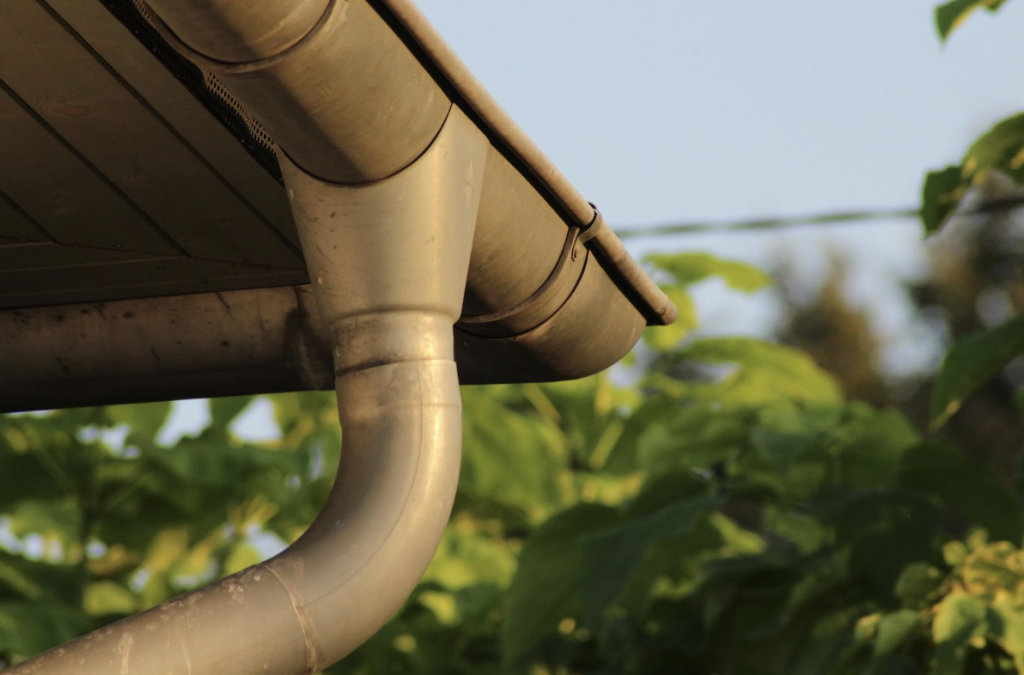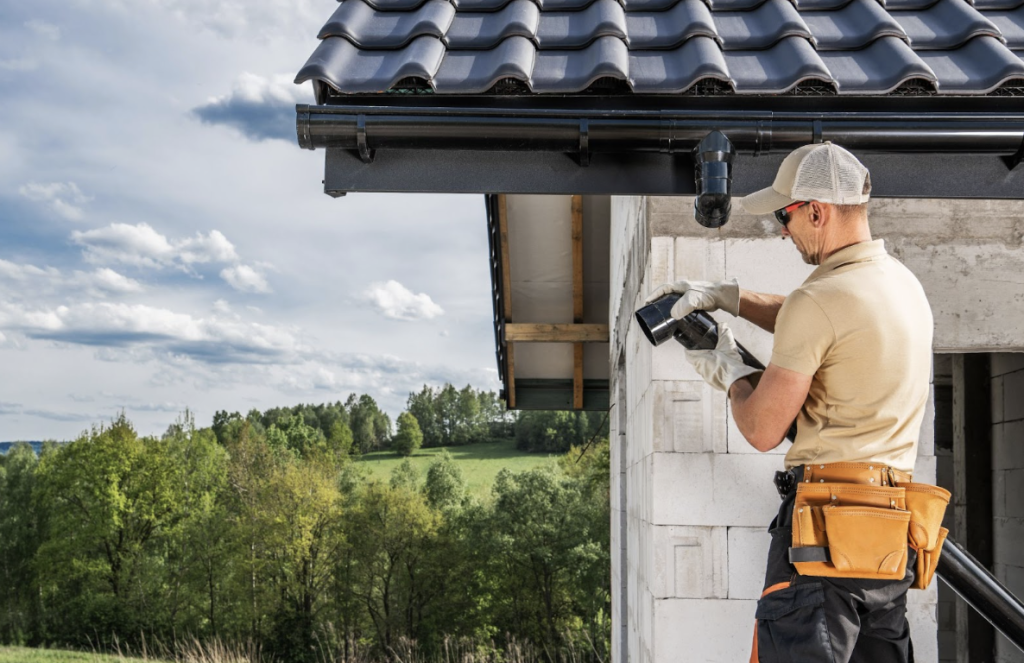Metal roofs have become increasingly popular among homeowners for their durability, energy efficiency, and sleek appearance. As you consider this roofing option for your home, you may wonder about the need for gutters. Do you need gutters with a metal roof?
This topic sparks debate among contractors and homeowners alike, with valid arguments on both sides, making it essential to weigh the pros and cons before making a decision.
In this article, we’ll examine the factors in deciding whether to install gutters on a metal roof. We’ll cover the properties of metal roofing, their impact on water runoff, and the benefits and drawbacks of gutters in relation to climate, landscape, and building design. By the end, you’ll be equipped to make an informed choice that suits your home and preferences.

Do You Need Gutters With a Metal Roof?
While metal roofs are renowned for their durability and efficient water-shedding properties, gutters still play a crucial role in managing water runoff. These roofing systems work together to protect your home from potential water damage.
Metal roofs may reduce the risk of water pooling, but without gutters, rainwater can still cause issues around your home’s foundation. Gutters provide a controlled path for water to flow away from your property, preserving its structural integrity.
The combination of a metal roof and a well-designed gutter system offers optimal protection against water-related issues. This pairing ensures that your home benefits from both the longevity of a metal roof and the water management capabilities of gutters.
Benefits of gutters on a metal roof
Gutters on a metal roof serve as a vital water management system, directing runoff away from the home’s foundation. This prevents water accumulation near the foundation, helping avoid erosion, basement flooding, and potential structural damage.
Additionally, gutters protect your landscaping from water damage caused by roof runoff. They prevent soil erosion around your home and safeguard plants from being damaged by the force of falling water from the roof’s edge.
By channeling water away from walkways and driveways, gutters also enhance safety around your property. They reduce the risk of slippery surfaces and ice formation in colder climates, making your home safer for both residents and visitors.
Factors to consider for gutters on metal roofs
Metal roofs are known for their ability to shed water more quickly than traditional roofing materials. This rapid water flow necessitates properly sized and installed gutters to effectively handle the increased volume and speed of runoff.
When installing gutters on a metal roof, consider factors such as the roof’s pitch, local climate, and typical rainfall intensity. These elements will influence the size and type of gutters best suited for your metal roof system.
The material of your gutters is also an important consideration. Aluminum or steel gutters often pair well with metal roofs, offering durability and aesthetic cohesion. Ensure that the gutter material is compatible with your metal roof to prevent any potential galvanic corrosion.
Alternatives to traditional gutters
For some metal roof installations, alternatives to traditional gutters can be effective in managing water runoff. Rain diverters, for instance, are small metal channels installed on the roof surface to redirect water flow.
Another option is drip edge extensions, which extend the roof’s drip edge to guide water away from the building’s foundation. These alternatives can be particularly useful in areas with minimal rainfall or for structures where traditional gutters are impractical.
Rain chains offer a decorative alternative to downspouts, guiding water from the roof to the ground or a catchment system. While they may not be suitable for all climates, they can provide an attractive water management solution for some metal-roofed homes.
Maintaining gutters on a metal roof
Regular maintenance is crucial for gutters on any roof, but it’s particularly important with metal roofs due to their fast, water-shedding nature. Cleaning debris from gutters and ensuring proper drainage helps prevent overflow and potential water damage.
Inspect your gutters seasonally, removing leaves, twigs, and other debris that can cause blockages. Check for proper alignment and secure attachment to the fascia. The weight of water in full gutters can cause them to pull away from the house over time.
Consider installing gutter guards to reduce the frequency of cleaning and minimize debris accumulation. However, even with guards, periodic checks and maintenance are still necessary. These ensure optimal performance of your gutter system on your metal roof.
Types of Gutters for Metal Roofs
Metal roofs can be paired with various gutter types, including K-style, half-round, box, and fascia gutters. K-style gutters are popular for their higher water capacity and modern look, while half-round gutters offer a classic aesthetic and are easy to clean. Box gutters are often used on commercial buildings or homes with large roof areas, and fascia gutters provide a sleek, seamless appearance.
When selecting gutters for metal roofs, as mentioned above, material choice is crucial. Aluminum and steel are commonly recommended for their durability and corrosion resistance, while copper offers a luxurious option that ages well.
The choice of gutter type and material should consider several factors, including the home’s architecture, local climate, expected rainfall, and personal preferences for appearance and maintenance.

Conclusion
Do you need gutters with a metal roof? While metal roofs are highly efficient at shedding water, gutters play a crucial role in managing runoff and protecting your home’s foundation and surroundings.
We hope this article has helped you understand the importance of gutters, even with a metal roof, and the various options available to you. Whether you choose traditional gutters or alternative solutions, the key is to ensure proper water management for your home.
Consider the factors we’ve discussed when selecting the right gutter system for your metal roof. A well-designed water management system is essential for enhancing your home’s protection against water damage and extending the lifespan of your roofing investment. This is crucial for any roofing solution, including metal roofs and those made from other materials.
